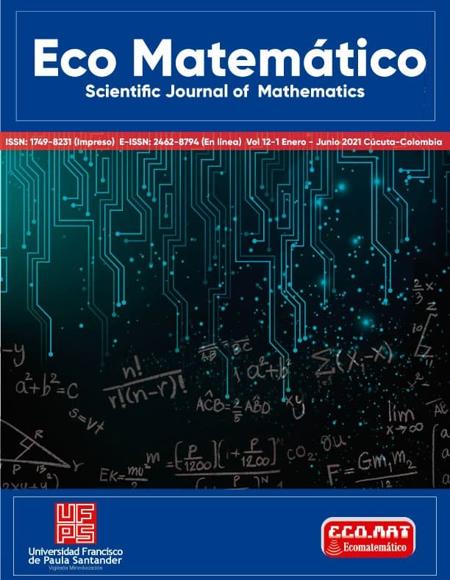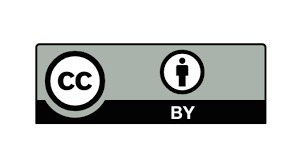Use of realistic mathematics and its relationship in learning probability, in a rural context
Uso de la matemática realista y su relación en el aprendizaje de la probabilidad, en un contexto rural
Main Article Content
The relationship of random knowledge with the context is part of the baggage to face the current needs of society. The objective of the work is to characterize the use of realistic mathematics and its relationship in the learning of probability, in the rural context. Methodologically, the design is that of an action research, structured in five cycles: identifying the problem, creating the plan, executing it, providing feedback and characterizing said process. Then, observation, field diary, survey, questionnaire and unstructured interview were used as the techniques and instruments for data collection. In this way, different obstacles were revealed in some sections, which were overcome with realistic mathematics in a gradual and systematic way, which is why it was possible to conclude that this theory of mathematics education positively impacts the probabilistic learning process. due to the divergent abilities it develops to solve problems inherent in the environment.
Downloads
Article Details
Alsina, Á., & Salgado, M. (2019). Prácticas de medida en Educación Infantil desde la perspectiva de la Educación Matemática Realista. Edma 0-6: Educación Matemática en la Infancia, 7(2), 24-37
Andrade Diaz, I. M. (2019). Estrategia pedagógica para promover el desarrollo de habilidades en el pensamiento probabilístico en los estudiantes del grado cuarto de la sede los llanos de la institución educativa rural jordán güisía
Batanero, C., Burrill, G. y Reading, C. (Eds.) (2011). Teaching Statistics in School Mathematics- Challenges for Teaching and Teacher Education. A Joint ICMI/IASE Study. New York: Springer
Batanero, C., Chernoff, E. J., Engel, J., Lee, H. S., & Sánchez, E. (2017). Topic Study Group No. 14: Teaching Learning of Probability. In Proceedings of the 13th International Congress on Mathematical Education (pp. 439-442). Springer, Cham
Batanero, C., Contreras, J. M., Fernandes, J. A., & Ojeda, M. M. (2010). Paradoxical games as a didactic tool to train teachers in probability
Ben-Zvi, D., & Garfield, J. B. (Eds.). (2004). The challenge of developing statistical literacy, reasoning and thinking (pp. 3-16). Dordrecht, The Netherlands: Kluwer academic publishers
Bonotto, C. (2010). Realistic mathematical modeling and problem posing. In Modeling Students' Mathematical Modeling Competencies (pp. 399-408). Springer, Boston, MA
Botella Nicolás, A. M., & Ramos, P. (2019). Investigación-acción y aprendizaje basado en proyectos. Una revisión bibliográfica. Perfiles educativos, 41(163), 127-141
Brown, B., y Casado, M. (1970). La Técnica Delfos: Metodología usada para obtener la opinión de los expertos. Revista española de la opinión pública, (21), 217-226
Caicedo, S.A. y Calderón, M.A. (2020). Diseño y validación de un instrumento observacional para la valoración de acciones tácticas ofensivas en fútbol – vatof. Revista Retos, 38, 306-311
Carreño Patiño, L. M., Vergara García, R., & Sevillano Zafra, Y. (2017). Efecto de una estrategia metodológica de resolución de problemas para el desarrollo del pensamiento aleatorio-sistema de datos y procesos metacognitivos (Master's thesis, Universidad del Norte)
Cruz, M. (2009). El método Delphi en las investigaciones educacionales. Editorial Academia
Escobar-Pérez, J., Herrera Rojas, A. N., & Gea Serrano, M. M. (2019). Identificación de precurrentes para el pensamiento estadístico y probabilístico en niños de primaria a través del mapeo conceptual
Estrada, A., & Batanero, C. (2019). Prospective primary school teachers’ attitudes towards probability and its teaching. International Electronic Journal of Mathematics Education, 15(1), em0559
Freudenthal, H. (1973). Mathematics as an educational task en Educación Matemática Realista, Bases Teóricas. Publicación del GPDM
Freudenthal, H. (1977). Desembramiento y siembra: Prefacio a una ciencia de la educación matemática. Springer Science & Business Media
Gómez, E., Ortiz, J. J., Batanero, C., & Contreras, J. M. (2013). El lenguaje de probabilidad en los libros de texto de Educación Primaria. UNIÓN. Revista Iberoamericana de Educación Matemática, 35, 75-91
Gravemeijer, K., & Doorman, M. (1999). Context problems in realistic mathematics education: A calculus course as an example. Educational Studies in Mathematics, 39(1), 111–129
Hernández, Y. C., Díaz, M. H., & Pérez, M. Á. Los proyectos investigativos en el bachillerato: una alternativa para el proceso de enseñanza-aprendizaje de la estadística
Isaza Cardona, C. A. (2020). Los contextos inmediato, situacional y sociocultural en el aprendizaje de la probabilidad
Julie, H. (2018, September). Developing LTBI for addition and multiplication rules in probability theory with realistic mathematics education. In Journal of Physics: Conference Series (Vol. 1088, No. 1, p. 012044). IOP Publishing
Kursat, Leyla & Judith Degen. 2020. Probability and processing speed of scalar inferences is context-dependent. In Stephanie Denison,
Michael Mack, Yang Xu & Blair C. Armstrong (eds.), Proceedings of the 42nd Annual Conference of the Cognitive Science Society, 1236–1242. Cognitive Science Society
Kwon, O. N. (2002). Conceptualizing the Realistic Mathematics Education Approach in the Teaching and Learning of Ordinary Differential Equations
Luká, S., & Gavala, T. (2019). Entorno de aprendizaje interactivo que apoya la visualización en la enseñanza de la probabilidad. Revista Internacional de Tecnologías de la Información y la Comunicación en Educación, 8(1), 48-60
Madsen, R. W. (1995). Secondary students' concepts of probability. Teaching statistics, 17(3), 90-92
Márquez-Mosquera, V. A., & Olea-Isaza, I. C. (2020). Las Actividades Orientadoras de Enseñanza como estrategia para enseñar la probabilidad en primaria: reflexiones de los maestros. Trilogía Ciencia Tecnología Sociedad, 12(22), 151-171
Memnun, D. S., Ozbilen, O., & Dinc, E. (2019). A Qualitative Research on the Difficulties and Failures about Probability Concepts of High School Students. Journal of Educational Issues, 5(1), 1-19
Morales Giraldo, S. M. (2018). Enseñanza de la probabilidad simple y probabilidad condicional a través de situaciones problema (Doctoral dissertation, Universidad Nacional de Colombia-Sede Medellín)
Okan, K. U. Z. U., & ARICAN, M. (2020). Investigating Preservice Middle School Mathematics Teachers’ Competencies in Statistics and Probability in Terms of Various Variables. Eğitimde ve Psikolojide Ölçme ve Değerlendirme Dergisi, 11(1), 13-26
Palinussa, A., Molle, J., & Gasperz, M. (2017, November). Development Mathematics Education of RuRal Context. In Proceeding International Seminar on Education (Vol. 1)
Pérez Roa, A., & Vásquez Olave, N. (2016). Educación matemática realista: un enfoque para desarrollar habilidades de matematización con alumnos de secundaria (Doctoral dissertation, Universidad de Concepción)
Revina, S., & Leung, F. K. S. (2019). How the same flowers grow in different Soils? The implementation of realistic mathematics education in Utrecht and Jakarta classrooms. International Journal of Science and Mathematics Education, 17(3), 565-589
Sampieri, R. (2014). Metodología de la Investigación. 6ta Edición MrGraw-Hill
Sepriyanti, N., & Putri, E. M. (2018). Mathematics Learning Devices Development based on Realistic Mathematics Education on Probability. Al-Ta lim Journal, 25(1), 87-96
Sugilar, H., Rachmawati, T. K., & Nuraida, I. (2019). Integrasi interkoneksi matematika agama dan budaya. Jurnal Analisa, 5(2), 189-198
Taufina, T., Chandra, C., Fauzan, A., & Syarif, M. I. (2019, December). Development of Statistics in Elementary School Based RME Approach with Problem Solving for Revolution Industry 4.0. In 5th International Conference on Education and Technology (ICET 2019) (pp. 716-721). Atlantis Press
Tversky, A., & Kahneman, D. (1982). Evidential impact of base rates. In D. Kahneman, P. Slovic, & A. Tversky (Eds.), Judgment under uncertainty: heuristics and biases (pp. 153±160). New York: Cambridge University Press
Valero, P. (2002). Consideraciones sobre el contexto y la educación matemática para la democracia. Quadrante, 11(1), 49-59
Vásquez Ortiz, C., & Alsina, Á. (2017). Aproximación al conocimiento común del contenido para enseñar probabilidad desde el modelo del conocimiento didáctico-matemático. Educación matemática, 29(3), 79-108
Zamora, L., & Díaz, J. (2019). Empleo del paquete ExpRep para repetición de ensayos de Bernoulli en la enseñanza de las probabilidades. Revista Digital: Matemática, Educación e Internet, 19(1)







